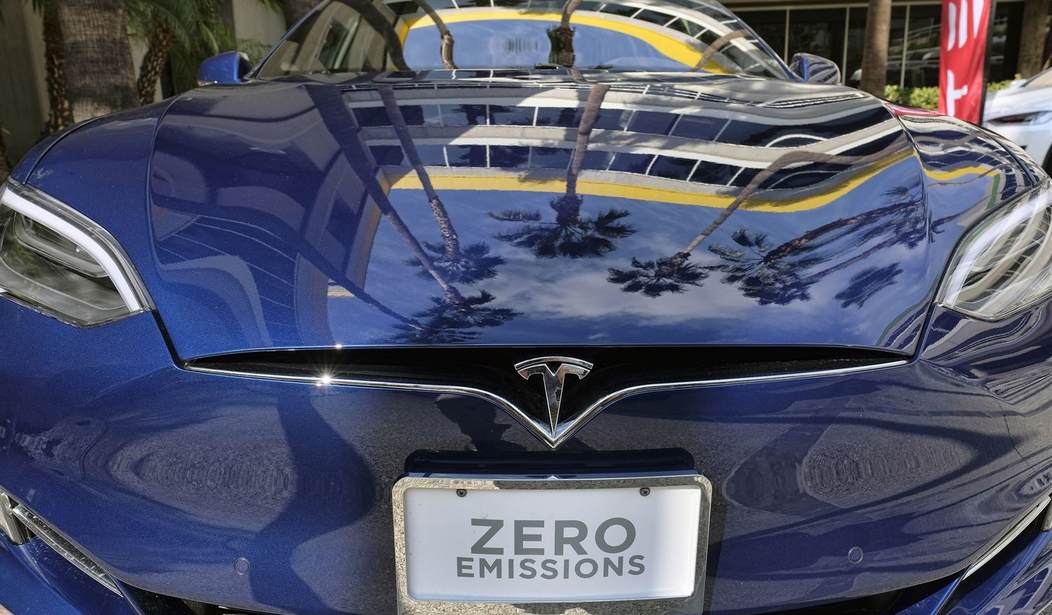There’s a huge chunk of good news out this afternoon for Elon Musk and his cutting edge electric vehicle company, Tesla.
In a closely watched trial in California over responsibility relating to a 2019 crash, a jury decided that the autopilot on the Tesla in the accident was not at fault.
California jury has determined that a 2019 crash involving a Tesla was not the fault of a defect in the vehicle’s Autopilot feature.
The crash saw plaintiffs Lindsay Molander and her son, Parker Austin, sustain serious injuries after driver Micah Lee swerved off the road, resulting in his death. The pair sued the automaker in 2020.
The trio were riding in a Tesla Model 3 and the surviving passengers sued the company, arguing that the vehicle’s Autopilot had been responsible for the crash. The company had pointed to Lee’s consumption of alcohol prior to the incident, though his BAC reportedly fell below the state threshold to be considered intoxicated, the New York Times reported.
This is the second time this year that juries have come down on the side of the innovative car manufacturer.
The jury verdict represents Tesla’s second big win this year, in which juries have declined to find that its software was defective. Tesla has been testing and rolling out its Autopilot and more advanced Full Self-Driving (FSD) system, which Chief Executive Elon Musk has touted as crucial to his company’s future but which has drawn regulatory and legal scrutiny.
Even with the bells and whistles, Tesla has never claimed the car is fully ‘automated.’ They do insist that the driver, even while using the autopilot function, must remain alert to “monitor the vehicle.” That’s true even with their priciest FSD option.
…For an additional $12,000, owners can buy “full self-driving,” or FSD — a feature that CEO Elon Musk has promised for years will one day deliver full autonomous driving capabilities.
Tesla vehicles are not self-driving. Instead, FSD includes a number of automated driving features that still require the driver to be ready to take control at all times. It includes everything in Enhanced Autopilot and is supposed to handle steering on city streets and recognize and react to traffic lights and stop signs.
Tesla is very clear on that point.
…Tesla won an earlier trial in Los Angeles in April with a strategy of saying that it tells drivers that its technology requires human monitoring, despite the “Autopilot” and “Full Self-Driving” names.
That case was about an accident where a Model S swerved into the curb and injured its driver, and jurors told Reuters after the verdict that they believed Tesla warned drivers about its system and driver distraction was to blame.
In this particular case, it wasn’t driver distraction so much as a question of impairment that may have led to what sounds like a truly horrific crash. The driver did pop for alcohol but was below the legal BAC threshold to be charged for intoxication.
…The civil lawsuit filed in Riverside County Superior Court alleged the Autopilot system caused owner Micah Lee’s Model 3 to suddenly veer off a highway east of Los Angeles at 65 miles per hour (105 km per hour), strike a palm tree and burst into flames, all in the span of seconds.
The 2019 crash killed Lee and seriously injured his two passengers, including a then-8-year-old boy who was disemboweled, court documents show. The trial involved gruesome testimony about the passengers’ injuries, and the plaintiffs asked the jury for $400 million plus punitive damages.
Tesla denied liability, saying Lee consumed alcohol before getting behind the wheel. The electric-vehicle maker also argued it was unclear whether Autopilot was engaged at the time of the crash.
This is a bit of really good news at the end of a dreary quarter for Elon and has to be a sigh of relief. Right now he and the company are facing lawsuits and government scrutiny over the Autopilot feature and it is going to be a long slog.
…Tesla still faces a number of other lawsuits in California, including a wrongful death suit that was filed by the family of Walter Huang, an Apple engineer who died after his Tesla Model X with Autopilot engaged crashed into a highway median. The State of California Department of Transportation is also named in the lawsuit. That wrongful death lawsuit, filed in California Superior Court, County of Santa Clara, alleges that errors by Tesla’s Autopilot driver assistance system caused the crash that killed Huang on March 23, 2018. Huang, who was 38, died when his 2017 Tesla Model X hit a highway barrier on Highway 101 in Mountain View, California. A jury trial is expected to begin next year in that case.
Tesla is also facing scrutiny from federal and state regulators, all of which are related to Autopilot and its upgraded version known as Full Self-Driving.
Being an innovator and entrepreneur who wears all the hats can be a heavy load at a single company.
Elon has multiple balls in the air at any given time, with a lot of eyeballs aimed at each one of them.
And the entities doing the staring as the balls get tossed around are far from friendly, and just waiting for the slip-up to reach in.
They have to be disappointed today.








Join the conversation as a VIP Member